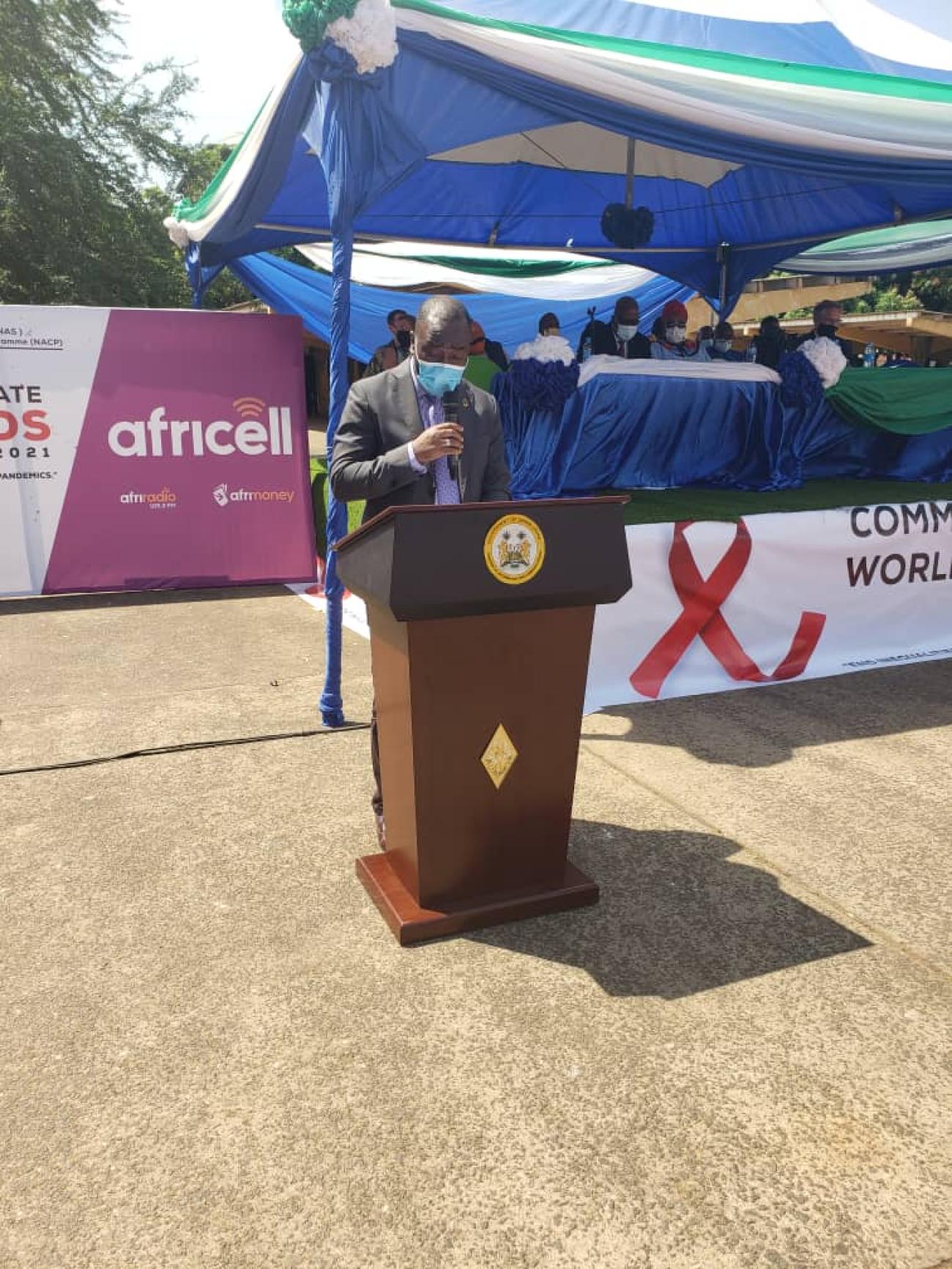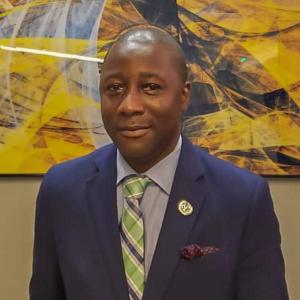On 1 December 2021 during the commemoration of World AIDS Day in Freetown, Sierra Leone, UN Resident Coordinator Babatunde Ahonsi called on Sierra Leoneans, particularly people living with HIV/AIDS (PLHIV), key populations, and other vulnerable groups, to get vaccinated against the COVID-19 virus.
He said that the threat of a more virulent, infectious, and deadly COVID-19 variant should be a matter of grave concern. According to the RC, the world is witnessing the fourth wave of COVID-19 in many countries, and in Sierra Leone, “it is sad to note that despite Government and Development Partners’ efforts to bring close to one million vaccines into the country, less than 10% of the population is fully vaccinated”.
The theme for this year’s World AIDS Day is End Inequalities, End AIDS, End Pandemics, drawing attention to the underlying inequalities that fuels the scope, scale and impact of HIV, COVID-19, and other colliding pandemics.
Mr Ahonsi said people should be committed to working together to create an equal and just society in which all Sierra Leoneans can live in an environment free from stigma, discrimination, and violence. “This is an important prerequisite for achieving the Human Capital Development agenda of the government”. He adds that it is also a precondition for all citizens to realise their full potential as envisioned in the National Medium Term Development Plan and the 2030 Sustainable Development Goals.
“Together, we can end all forms of inequalities, end AIDS as a public health threat by 2030 and end today’s and tomorrow’s pandemics. The time to act is now,” the RC underlined.
He also recognised the Ministry of Health and Sanitation and the National AIDS Secretariat’s efforts in embarking on a cervical cancer campaign targeting 10,000 women living with HIV, female sex workers and other vulnerable population groups.
“Like HIV, cervical cancer is a disease of gender and other inequalities. These two interconnected diseases starkly expose the links between inequity, social and health injustice. Ninety per cent of 311 000 cervical cancer annual deaths globally occur in low- and middle-income countries. Globally, 6% of all cases of cervical cancer are in women with HIV. Yet, evidence from Southern Africa has shown that 63% of all women diagnosed with cervical cancer were HIV positive,” the RC informed his audience.
He adds that although the rates may be lower in other regions of the world and there is no reliable data on the situation in Sierra Leone, cervical cancer remains a matter of public health concern.
In her keynote address, the First Lady of the Republic of Sierra Leone, Madam Fatima Bio, called for the barriers of inequality to be broken. “The biggest pandemic we have in the world today is inequality,” she said, underscoring that women and girls do not need validation from men but their cooperation.
She informed the gathering that she would now be turning her attention to efforts around cervical cancer.
A representative from People Living with HIV said that the commemoration is a moment for reflection and a moment to make new commitments on the fight against HIV/AIDS. She said that to end HIV/AIDS by the 2030 target, “we need to end inequality in all its forms.
In his remarks, Minister of Health and Sanitation Dr Austin Demby said that the landscape has changed for those living with HIV/AIDS. “If you take the medication in good time and over a sustained period, you will live a normal life, and it is free,” he said.




